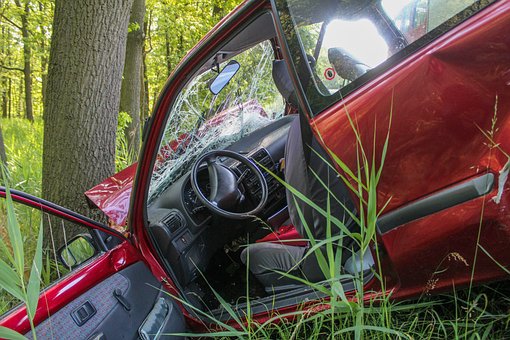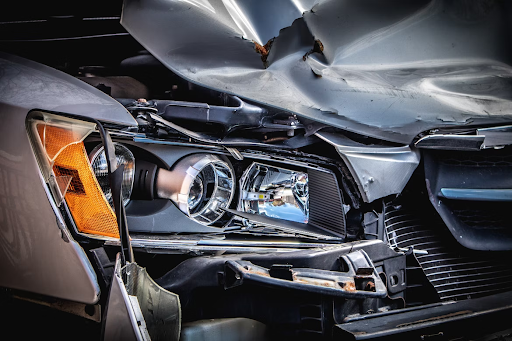The Most Important Benefits Of Calling An Attorney
There are currently 1.3 million attorneys in the United States. That might seem like a lot. But each has its own area of specialty and at some point in your life, you may need to hire one of them. For many people, the thought of hiring a lawyer can be intimidating. After all, the legal system is complicated and there is no guarantee that you will get the outcome you want. But it’s important to remember that hiring an attorney can bring about a variety of benefits—some of which are more far-reaching than others. Whether your legal issue is serious or minor, calling an attorney before taking any other action could be one of the smartest moves you make. Keep reading to find out why you might want to call a lawyer.
Get a Free Consultation
Do you need to hire a lawyer? Sometimes it’s not 100 percent clear. For example, if you’re in an accident, do you need an attorney? For some, a lawyer can be an immense help, for others, it might not be worth it. Fortunately, many attorneys offer free consultations. This can help you get the advice you need about how to move forward.
Get Expert Advice
You shouldn’t count on your neighbor for legal advice (unless they happen to be an attorney, and if that’s the case go for it). However, if your nosy neighbor isn’t a professional, you should take the time to look for an expert. When you consult with an attorney, you will get expert advice on how to resolve your legal issue. If you get involved in a car accident, for instance, a car accident lawyer will be able to provide you with information on the applicable laws and regulations, as well as answer any questions you may have about your car accident case. This in turn will help you save time. Trying to resolve a legal issue on your own can be time-consuming and frustrating. An attorney can handle all the paperwork and legwork involved in resolving your issue so that you can focus on other things.
Avoid Costly Mistakes
If you attempt to resolve a legal issue without an attorney, you may end up making costly mistakes that could jeopardize your case. You could end up paying more in the long run from trying to DIY your legal issues. An experienced attorney will know how to avoid these mistakes and give you the best chance of success. In addition, if you’ve been injured, it’s easy for insurance companies to take advantage of you. However, working with the right lawyer will help ensure you get the compensation you deserve.
Have Someone to Advocate for You
Who is looking out for you during your case? When you are facing a legal issue, it is important to have an advocate on your side who understands the complexities of the law. An experienced attorney can help you navigate the legal system, protect your rights, and ensure that you receive the best possible outcome in your case. For example, if you’re being charged with a crime, an attorney can help you understand the charges against you and the evidence that may be used in your case. They can also help negotiate with prosecutors to get charges reduced or dismissed, and can represent you at trial if necessary. If you are convicted of a crime, an attorney can help you appeal your conviction or sentence. In addition to criminal cases, attorneys also handle civil matters such as divorce, child custody, and property disputes. Plus, if you are considering entering into a contract or taking another legal action, a lawyer can advise you of the potential risks and benefits involved.
Protect Yourself and Your Business
The right attorney is essential for business owners. Business attorneys can help you protect yourself and your business. They do this by helping you navigate the legal landscape and make sure that you are in compliance with all applicable laws. An attorney can also help you draft contracts and agreements, and negotiate on your behalf if necessary. In addition, if you are ever sued or accused of wrongdoing, an attorney can represent you in court and defend your rights. An attorney can also help you protect your business in other ways. For example, they can help you determine the best legal structure for your business, such as a corporation or limited liability company. They can also assist with trademark and copyright protection, employee contracts, intellectual property protection, and more. An attorney can also provide advice on tax matters and help you avoid costly mistakes. Finally, an attorney can serve as a trusted advisor who will provide sound advice that helps protect the long-term success of your business.
Lawyers Know How to Challenge Evidence
This is important because it can help you get your charges dropped or reduced, or even win your case outright. For instance, if the police collected evidence against you without a warrant, your lawyer can file a motion to suppress that evidence. This means that the judge will not allow that evidence to be used against you at trial. If the judge grants the motion, then the prosecutor will not be able to use that evidence against you and your case may be dismissed altogether. Even if the police had a warrant, your lawyer can still challenge the evidence they collected. For example, if the police searched your home without a warrant or probable cause, your lawyer can file a motion to suppress any evidence they found as a result of that search. Again, if the judge grants the motion, then that evidence cannot be used against you at trial.
Get the Best Possible Results
An attorney can help you get the best possible results for your case. How can they do that? There are a few ways:
- Explain your legal options and what they mean
- Negotiate with other involved parties to reach a fair settlement
- Represent you in court and fight for a favorable verdict
- Help with other legal matters (i.e., drafting contracts, wills, filing taxes, and general legal issues)
- Advocate for you and help you have peace of mind
Experience Peace of Mind by Working With the Right Attorney
Calling an attorney can be a daunting prospect for many people, but by considering the most important benefits derived from doing so, it is clear that it is often necessary. Attorneys are highly trained professionals who can provide invaluable assistance in navigating legal matters and disputes. In addition to providing clarity and peace of mind, attorneys also offer protection against unfair settlements and costly mistakes. Taking the time to contact an experienced lawyer ensures that your rights are safeguarded throughout any legal proceedings you may encounter.
















